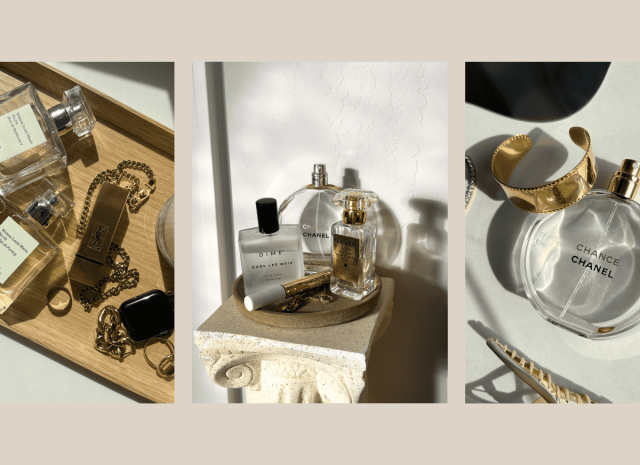Perfume is one of the most personal beauty products you can wear. But have you ever noticed how a fragrance that smells amazing in the store can change completely when you wear it? This isn’t just your imagination—there’s real science behind it.
Why Perfume Changes on Your Skin
Perfumes are made up of different scent layers (top, middle, and base notes) that evolve over time. When you spray it on your skin, three key factors come into play:
- Body heat activates the fragrance
- Your skin’s natural oils interact with the scent
- Your unique skin chemistry alters how it develops
What Affects Your Scent?
- Skin type: Dry skin makes citrus scents fade faster, while oily skin intensifies woody fragrances
- pH levels: Acidic or alkaline skin can change how floral perfumes smell
- Diet: Strong foods like garlic or spices can subtly alter your natural scent
- Hormones: Stress or menstrual cycles impact how fragrance develops
- Hydration: Moisturized skin holds scent better and more accurately
How to Make Any Perfume Work for You
- Moisturize first: Apply unscented lotion to create a neutral base
- Try different application spots: Behind knees or inner elbows may work better than wrists
- Spray clothes or hair: Fabrics hold fragrance differently than skin
- Experiment with concentrations: Eau de Parfum lasts longer than Eau de Toilette
- Wait for the dry-down: Give it 30-60 minutes to fully develop
Smart Testing Tips
- Always test on your skin before buying
- Wear samples for a full day to see how they evolve
- Consider perfume subscriptions to try different scents
The Beauty of Personal Scent
When a perfume changes on your skin, it’s creating something uniquely yours. That’s why the same fragrance can smell completely different—and special—on different people. So when someone compliments your scent, they’re really noticing how beautifully it becomes part of you.



























